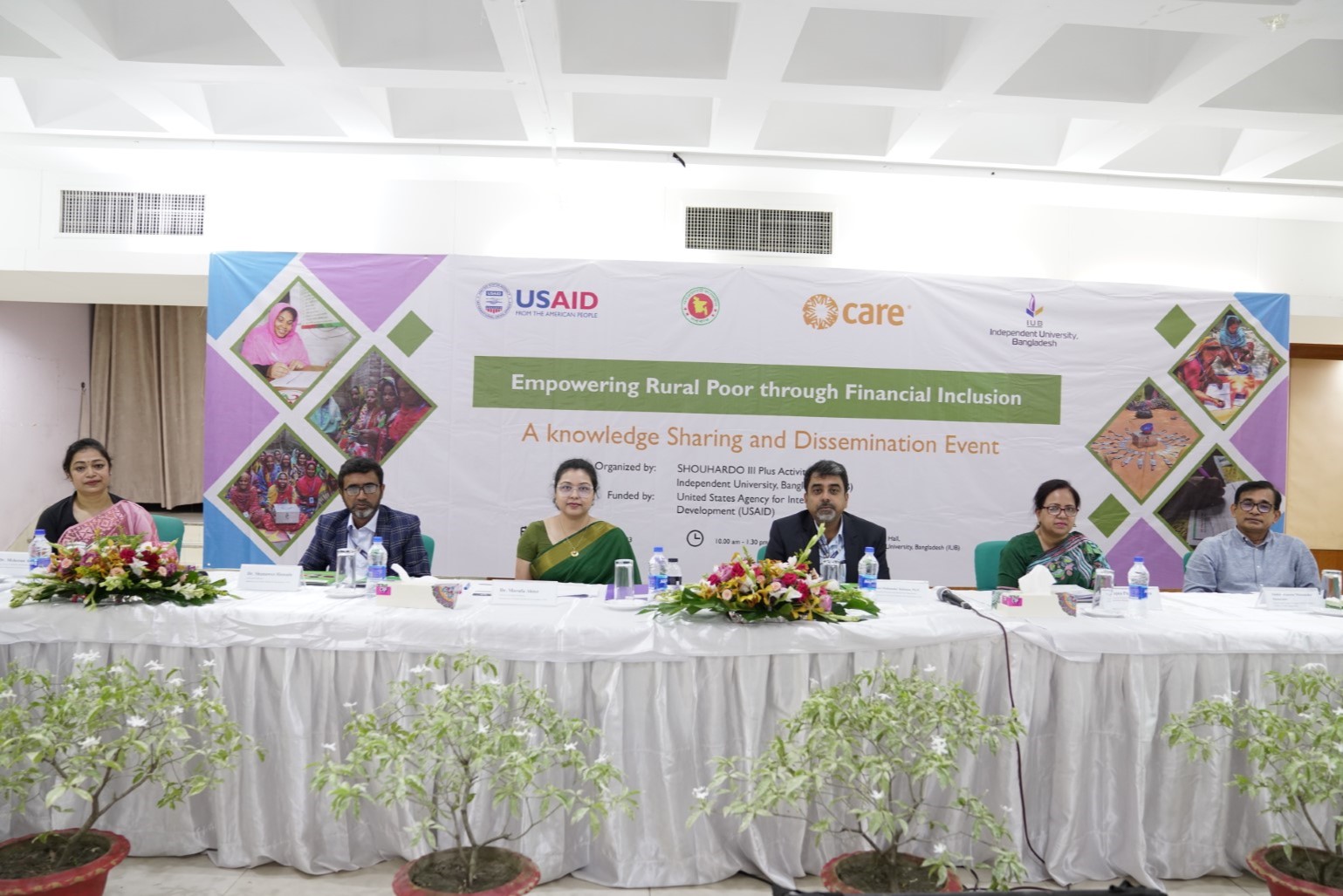
Dhaka, October 04, 2023 – At a dissemination event titled “Empowering rural poor through financial inclusion” jointly hosted by USAID’s Strengthening Household Ability to Respond to Development Opportunities (SHOUHARDO) III Plus Activity of CARE Bangladesh, and Independent University, Bangladesh (IUB) on their Dhaka campus, speakers emphasized the pivotal role commercial banks can play in enhancing financial inclusion for the rural poor in Bangladesh. A diverse array of guests participated in this event held on Wednesday 04 October, including a majority of representatives from commercial banks, alongside Bangladesh Bank, and development organizations, IUB faculty members and graduate students, officials from CARE Bangladesh and others.
Ramesh Singh, Country Director of CARE Bangladesh, graced the event as the guest of honor and he emphasized on evidence generation an important aspect to reach out to the rural poor and extreme poor. He also mentioned that inviting academia to collaborate on more research for the financial inclusion of the poor is necessary.
“Financial Inclusion is the key instrument for breaking the cycle of poverty”, said Dr. Bokhtiar Ahmed, Professor and Dean, School of Liberal Arts and Social Sciences, IUB, while speaking as the Event Chair. He also stressed on the importance of designing financial products from a human-centric point of view to avert the risk of the intended stakeholders being pushed more into debt.
During the session, CARE Bangladesh team shared insightful research findings on the loan-taking experiences of the rural poor from both formal and informal financial institutions in Bangladesh. 
“Financial inclusion is important for sustainable development and the economy. Bangladesh Bank could bring the VSLAs and other self-organized savings and loan groups under the umbrella of financial inclusion if they are brought under banking by commercial banks.”, said Prajna Paramita Saha, Additional Director-Financial Inclusion Department, Bangladesh Bank, who was a panelist at the event.
The panel discussion illuminated the vital roles of diverse formal and informal institutions, including Non-Governmental Organizations-Micro Finance Institutions (NGO-MFIs), private money lenders, friends and family, in extending loans to impoverished and extremely deprived communities in rural Bangladesh. The participants underscored the significance of self-organized savings and loan groups like the Village Savings and Loan Association (VSLA) in meeting the impoverisher’s immediate and smaller loan requirements. Despite the substantial trust VSLAs have garnered among the rural poor, it was emphasized that they have not yet gained recognition within the Financial Inclusion Policy of the Bangladesh Government. The discourse called for the inclusion of these groups in financial policies and encouraged commercial banks to expand their footprint into remote areas through the advancement of agent and digital banking and the provision of low-interest microloans. As commercial banks continue to extend their reach and digital offerings, they emerge as a promising solution for offering loan alternatives and integrating the unbanked population into the financial mainstream.